
-
Understanding primary immunodeficiency (PI)

Understanding PI
The more you understand about primary immunodeficiency (PI), the better you can live with the disease or support others in your life with PI. Learn more about PI, including the various diagnoses and treatment options.
-
Living with PI
-
Addressing mental health
-
Explaining your diagnosis
- General care
- Get support
- For parents and guardians
-
Managing workplace issues
- Navigating insurance
-
Traveling safely

Living with PI
Living with primary immunodeficiency (PI) can be challenging, but you’re not alone—many people with PI lead full and active lives. With the right support and resources, you can, too.
-
Addressing mental health
-
Get involved

Get involved
Be a hero for those with PI. Change lives by promoting primary immunodeficiency (PI) awareness and taking action in your community through advocacy, donating, volunteering, or fundraising.
-
Advancing research and clinical care
-
Research Grant Program
-
Consulting immunologist
-
Diagnosing PI
-
Getting prior authorization
-
Clinician education
-
Survey research
-
Participating in clinical trials

Advancing research and clinical care
Whether you’re a clinician, researcher, or an individual with primary immunodeficiency (PI), IDF has resources to help you advance the field. Get details on surveys, grants, and clinical trials.
-
Research Grant Program
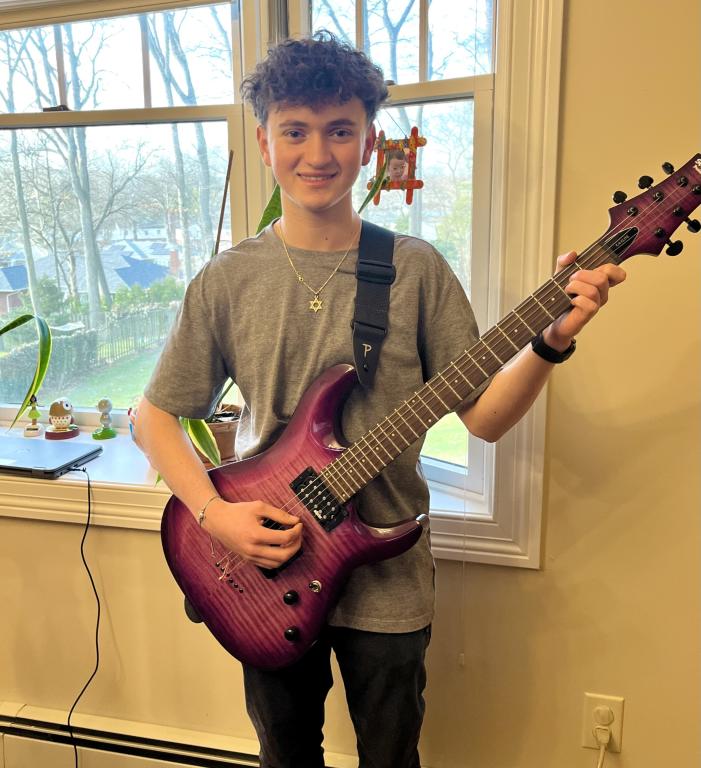
At the end of a 25-minute podcast, Ezra Fineman asks Simon Cooksey how a diagnosis of hyper IgM syndrome has influenced the profession he may want to pursue when he gets older. The 12-year-old says he’s considering careers that help others, like an emergency room doctor. Ezra, 15, segues into an insightful statement of support—and shares thoughts on his own journey with hyper IgM.
“Going back to the positives of hyper IgM, you said that it made you want to help people and we always want to have more people like that in our world. There’s always room for someone to be helpful and for someone to make a difference in the community. So, it’s great that you’ve let it build you up instead of pushing you back down,” said Ezra.
“The fight (with hyper IgM) has really helped me go about my day-to-day activities, school especially, and put me in a better mindset because I feel like what I have gone through just can’t compare to whatever I’m going through now, so I feel like it does give me a mental boost of strength.”
Ezra hosts “Patients Voices: Hyper IgM Podcast,” a podcast series presented by the Hyper IgM Foundation, a non-profit that supports persons diagnosed with hyper IgM. Hyper IgM is a primary immunodeficiency (PI) so rare that the X-linked variation, which is the most prevalent, affects just 2 in 1 million newborn boys. The condition is characterized by decreased levels of immunoglobulin G (IgG) and normal or increased levels of immunoglobulin M (IgM). Clinical symptoms include upper and lower respiratory tract infections, like sinusitis and pneumonia, gastrointestinal issues, low white blood cell counts, increased risk of cancer, and autoimmune disorders.
After undergoing two bone marrow transplants (BMT), Ezra no longer experiences symptoms from hyper IgM but that doesn’t make the condition any less significant in his life, particularly now that he’s getting older and he’s reflecting on his medical journey. Ezra said having hyper IgM taught him resilience.
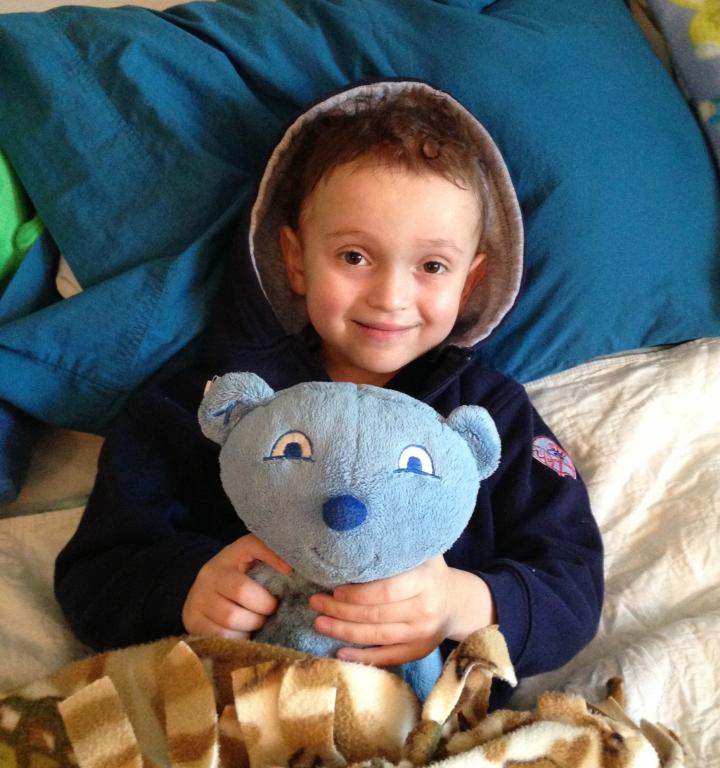
“I feel like it shaped me as a person and how I am around everybody, and I just wouldn’t be the same person without hyper IgM,” said Ezra, a rising high school sophomore and class president whose interests include skiing, playing the guitar, and flying drones.
Ezra received his diagnosis at five months old, after being hospitalized due to weight loss, vomiting, and pneumonia. Doctors at the local hospital couldn’t pinpoint the problem, but Ezra’s great uncle, head of pediatric critical care at a major children’s hospital, intervened in his great nephew’s case.
“He was the one who said you need to check that baby’s immune system, and we were very lucky because hyper IgM was not on the local hospital’s radar,” said Ezra’s mom, Robin Fineman.
Treatment with intravenous immunoglobulin (IVIG) replacement therapy and antibiotics helped control infections, but immunologists and transplanters disagreed on whether the family should move forward with BMT because Ezra did not have a donor who was a good match.
“It was hard because at the time there was a lack of studies on the outcomes of treatment of hyper IgM with transplant and I didn't always believe that the immunologists were necessarily fully informed on the experience of the transplant doctors,” said Fineman.
As Ezra’s parents learned more about the risks of hyper IgM and how BMT could extend Ezra’s life, they decided not pursuing BMT was “unacceptable.”
“We didn't want him to look at us and say, ‘Why didn't you try to cure me when you had the chance?’ Because transplant survival rates significantly decrease as you get older. So, it was a decision that we had to make for him at that point in his life and we felt like we owed it to him to try,” said Fineman.
Ezra’s first transplant at age 3 using an umbilical cord stem cell donation failed because the graft was rejected. While the Finemans contemplated their next steps, an 18-year-old woman appeared in the bone marrow registry as a candidate. She wasn’t a perfect match for Ezra, who by then had turned 4, but close enough that doctors were willing to try.
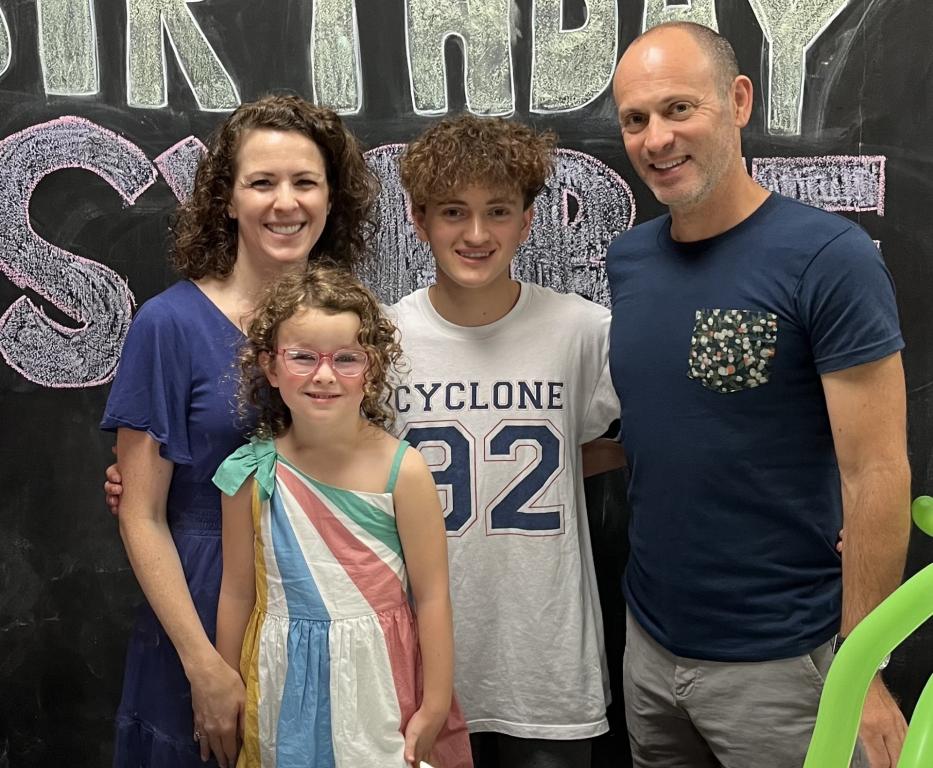
“We struggled with the decision about what to do because if the first transplant was risky, the second transplant was much riskier, and he'd be exposed to high-dose chemotherapy a second time around,” said his mother. “But we went forward, and it took, and he's been 100% donor since he engrafted, which is wonderful.”
Ezra’s full recovery took several years. He endured graft versus host disease of the skin and developed autoantibodies that caused him to destroy his red blood cells, platelets, and neutrophils. But with treatment, he started to feel better and passed a vaccine challenge at age 6.
“There were a lot of ups and downs, but when he responded to one of the vaccines, for us, that was the cure,” said Fineman, adding that Ezra started attending in-person school in first grade.
In the podcasts, Ezra poses introspective questions to other adolescents with hyper IgM that guide them through conversations about themselves and their relationship with the condition. He also shares his own experiences, building connections with his peers and delving into topics like the unusual feeling of being in crowds of people after years of isolation, the challenges of describing the condition to friends, how the condition has brought him closer to his family, and how having hyper IgM made him a more effective communicator, especially with adults.
Through the Hyper IgM Foundation’s “Patient Voices” podcast series, available on YouTube, Spotify, and Apple, Ezra aims to elevate the perspective of young people living with hyper IgM and promote awareness of the condition for patients, providers, and the wider community. He hopes everyone, no matter if they have a medical condition or not, can find inspiration from listening.
“As bad as hyper IgM is, there are always positives that can come out of it,” said Ezra. “Even if your life is not looking the best right now, even if you’re confined to a hospital room, latch onto the little positive things. Keep them for as long as you can because hopefully, it'll get better.”
2026 PI Conference
Join us June 25-27, 2026, in San Antonio, Texas, for a transformative experience where stories connect, voices unite, and journeys inspire. No matter where you are in your primary immunodeficiency journey, access expert-led education, meaningful connections, and cutting-edge insights from world-renowned immunologists.
Register nowRelated resources
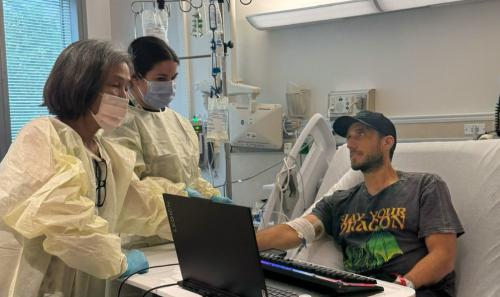
Man with X-linked hyper IgM first-ever to receive novel gene therapy
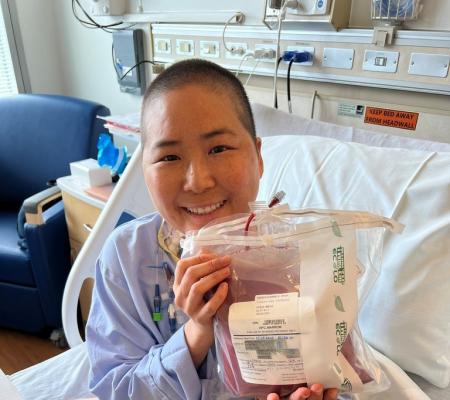
Pharmacist with CVID receives bone marrow transplant

Undiagnosed: Reuben & Sherri Johnson on CGD, chronic illness, and the fight for healthcare
Sign up for updates from IDF
Receive news and helpful resources to your cell phone or inbox. You can change or cancel your subscription at any time.





The Immune Deficiency Foundation improves the diagnosis, treatment, and quality of life for every person affected by primary immunodeficiency.
We foster a community that is connected, engaged, and empowered through advocacy, education, and research.
Combined Charity Campaign | CFC# 66309

